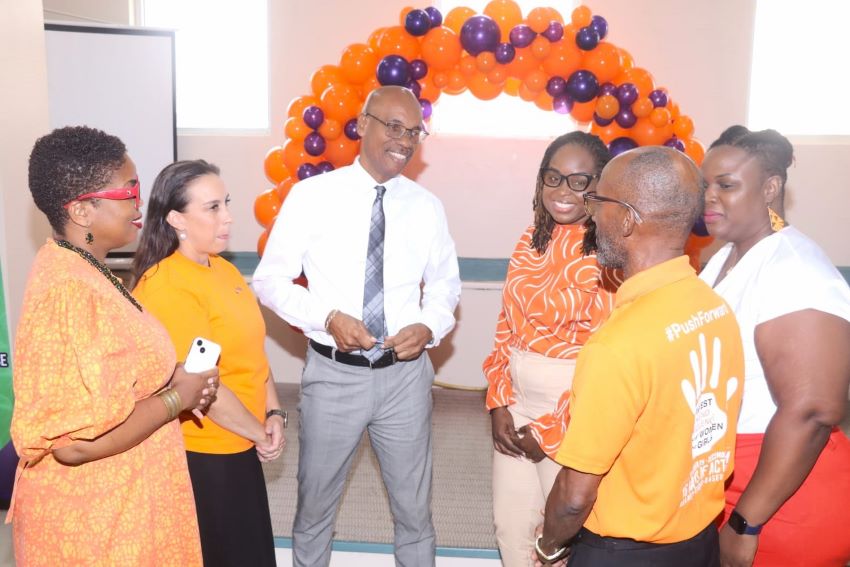A national policy on gender is expected to be submitted to Cabinet before the end of the financial year, March 2025.
Additionally, Government is looking to conduct a study on the prevalence of gender-based violence in Barbados to give a true picture of the problem.
Permanent Secretary in the Ministry of People Empowerment and Elder Affairs, Jehu Wiltshire, made the disclosure this morning at the launch of the 16 Days of Activism Against Gender-based Violence.
He told those in attendance that Government took the issue of GBV and domestic violence “very seriously” and was working with its international partners to eliminate its stain on Barbadian society.
The Permanent Secretary explained that data was needed to formulate policies and programmes to achieve this goal. He lauded entities such as the UN Women and the Institute for Gender and Development Studies for working with the ministry to develop a comprehensive national policy on gender.
Mr. Wiltshire explained that gender-based violence in the Caribbean was rife, with figures as high as one in two women experiencing this type of violence in some countries compared to the global statistics of one in three women.
He added that figures from the World Bank indicate that 3.7 per cent of a country’s gross domestic product was affected by such violence and suggested local figures could reflect this when a prevalence study is eventually conducted.
The Permanent Secretary noted that collecting data on domestic violence in Barbados was a challenge.
“The reports of the Criminal Justice Unit in the Office of the Attorney General indicate that cases of gender-based violence are definitely underreported and that police statistics do not comprehensively capture the extent of the problem.
“We recognise that redress of gender-based violence is urgent; it is an obstacle to gender equality and a threat to sustainable development. Not only is it dangerous to the health of women and girls, it also adds to the burden of health care costs, along with that of policing, judicial costs, underachievement in education, and loss of productivity at work,” he pointed out.
He said statistics show that women were more likely to experience a higher level of gender-based violence in times of crisis. This was evident, he said, during the COVID-19 pandemic when The Barbados Police Service observed a 38 per cent increase in domestic violence reports. Many of which were as a result of intimate partner violence.
Mr. Wiltshire also shared that the Ministry had put many programmes in place to deal with gender-based violence and the other problems associated with it. These include:
- A Resilience and Reintegration Programme to provide social relief to those persons impacted by disaster and emergency situations, and homelessness.
- A Partnership for Peace Programme, now in its 16th cohort, which addresses the male perpetrators of domestic violence. It is expected to be enhanced in the next year in partnership with UN Women.
- A programme targeting public service vehicle (PSV) drivers and conductors who come into contact with several women during the week. It aims to ensure that women and girls are treated with the respect that they deserve by these PSV workers. It is also being conducted in conjunction with UN Women.
- A Thousand Family Programme, which works with vulnerable families to empower them. The programme has a gender component to empower boys, women, and girls.
- Reinstituting the National Committee on Gender-based Violence with stakeholders from various entities tasked with developing strategies, and preparing a national action plan to accompany the national gender policy.
“I want to thank you the stakeholders and partners for working with the Bureau of Gender Affairs and the Ministry, to address gender-based violence. Government cannot do it all alone; we recognise we need to have a number of other entities working in the space with a view of eliminating this scourge; this stain on society,” he stressed. (PR/GIS)
Caption: Permanent Secretary in the Ministry of People Empowerment and Elder Affairs, Jehu Wiltshire (centre), speaking to (from left), Lecturer at The UWI’s Institute for Gender and Development Studies, Dr. Tonya Haynes; High Commissioner of Canada to Barbados, Brenda Wills; Director of the Bureau of Gender Affairs, William Warner (right), and other representatives at today’s launch.

